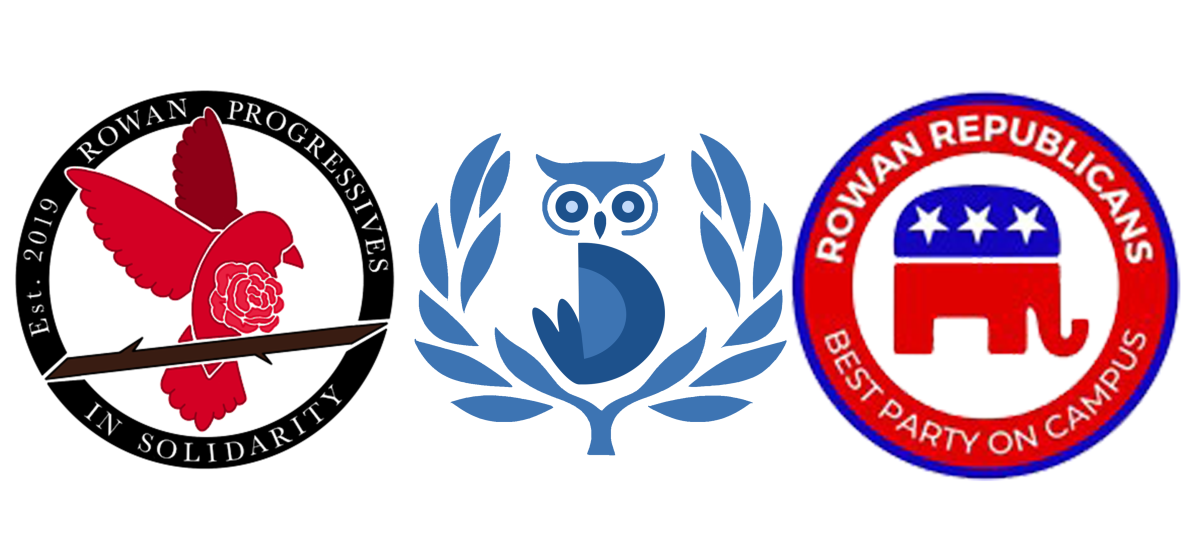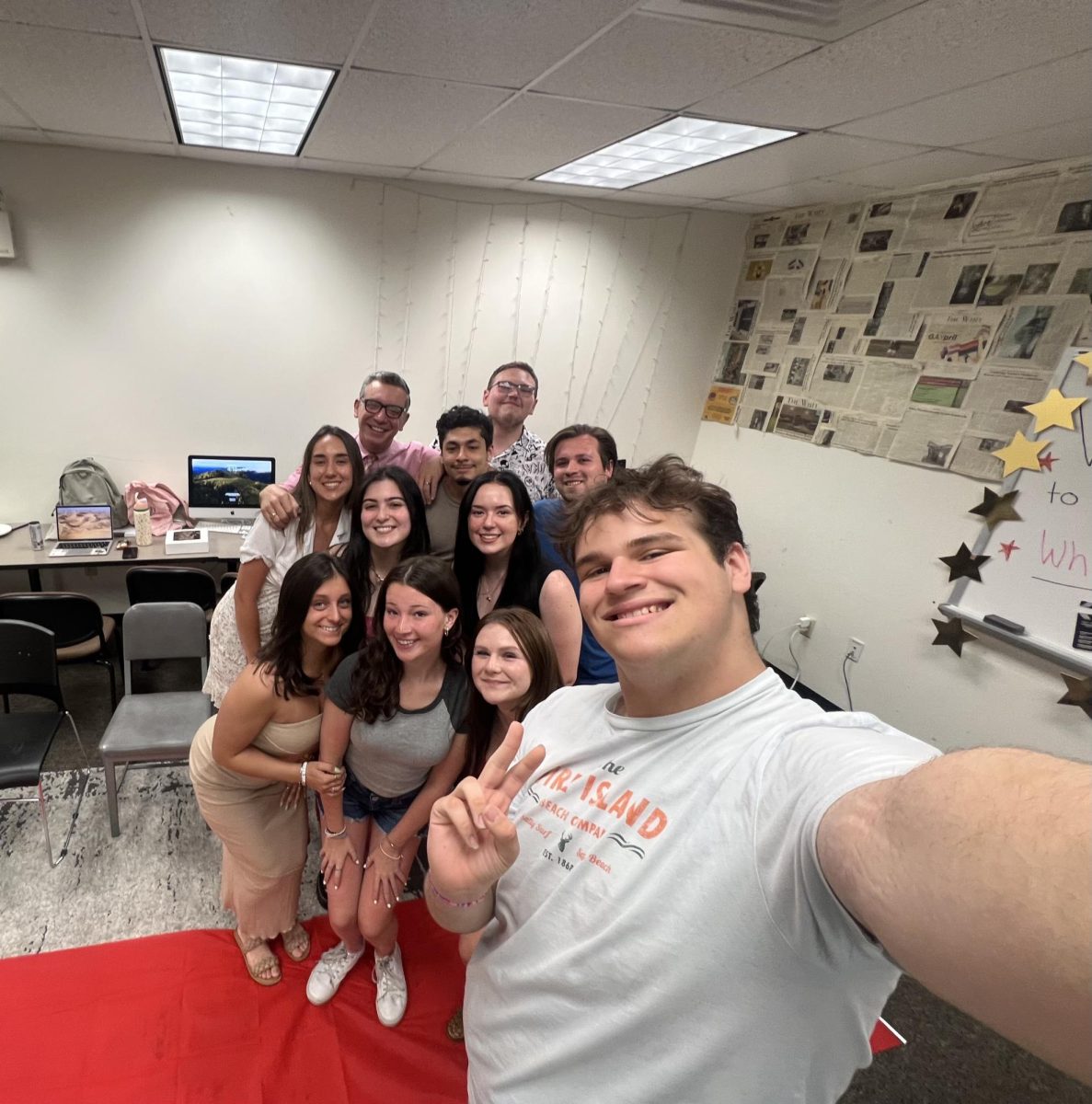
Rowan Progressives
As the U.S. war machine once again beats its drum and funnels its tax dollars directly into the hands of a far-right genocidal regime while simultaneously raining down missiles in the name of “freedom”, the issue of free healthcare feels increasingly irrelevant. But rather than relegate the free healthcare debate to the dustbin of public discourse, we should use the current iteration of senseless violence in the Middle East to reflect on the material realities of American “freedom” that our government massacres to protect.
Our healthcare system is an inhumane monstrosity. It functions not as a social institution but as an exploitative profit-making enterprise. Insulin prices have increased 600% over the last 20 years, insurance prices have increased 42% over the last 10 years, and over 44,000 people have died in the last year. Additionally, nurses are forced to work incredibly long hours under strenuous conditions due to increasingly unsafe staffing ratios imposed by hospital administrators. Such is our system that we are working longer, being treated worse, and dying more while paying for the privilege.
Meanwhile, insurance conglomerates are raking in record profits, taking home over $40 billion in profits. It is then self-evident that the present debate is a rather simple one. Are you okay with paying more and receiving less while thousands of people die and millions suffer while CEOs and executives party on yachts or not? The question of whether or not it’s time for universal healthcare is unmistakably clear and is beyond debate at this point. The much more interesting question is why it takes years of research and debate for our government to even consider, and ultimately reject, the idea of saving 500 billion dollars a year on healthcare and a single afternoon to spend $840 billion on war.
The taxpayer dollars that would be used to finance a universal health care system and are being used to slaughter civilians in the Middle East are not created out of thin air but are the direct product of human labor. All done in service of keeping the lights on, feeding their families, and of course, paying their insurance premiums. This relationship is what allows the wheels of the US economy to turn. Taking this into account concerning the previously mentioned facts, it is once again clear that these issues are not simply the product of fiscal irresponsibility, bad policymaking, moral failings, or even a broken system. For the system is not broken.
It is working as intended, for those intended.
It is in the system’s best interest for people to pay exorbitant fees for life-saving medical treatment. It is in the system’s best interests for people to be saddled with debt and get addicted to painkillers after an accident at work. It is in the system’s best interests for people to die on the street when they can’t afford medical care.
The solutions to these issues will never be found on Capitol Hill by policymakers or through public-private partnerships. They will be found on the streets of New Brunswick, Philadelphia, and Minnesota where nurses went on strike to fight for the implementation of safe staffing.
They will be found through the collective organization of the working class into entities and institutions that seek to dismantle oppressive social and productive hierarchies and establish more equitable and democratic ones. They will be found through the realization that the forces that render the establishment of Medicare For All near impossible and the forces that are currently bombing Yemen and Gaza are not isolated and antagonistic but interwoven and mutually dependent.

Rowan Democrats
As it stands in the United States, the healthcare system primarily revolves around the wants and needs of ginormous private sector providers. The private sector, meaning business, operates with one uncaring and overarching goal: generating a profit for shareholders. Large healthcare providers such as HCA Healthcare, CVS Health, and United Health Group have generated massive profits and have placed healthcare at the top of the economic totem pole. While the economic benefits of the current “medical-industrial” complex are indisputable, the effects of inaccessible, expensive, and unethical healthcare provisions create a “sickness care” system and further perpetuate the cycle of socioeconomic decline.
The system of “sickness care” has been called out by Democrats and Republicans alike because the philosophy of said system is to focus on intervention as opposed to prevention. A “sickness care” system is a prime example of an inequality market in which the healthcare providers profit off of the systemic socioeconomic disparities in healthcare coverage; this backward philosophy has played an aggressive role in the stratification of Americans who are insured versus uninsured. Most consumers are only ever one bad accident or injury away from total financial ruin; medical debt is the cause of over half of American bankruptcies and a leading cause of homelessness (which tends to lead to more and more severe medical problems).
Today, roughly 20% of Americans are reliant on Medicaid, a state-funded and issued insurance for low-income individuals. Federally backed programs such as Medicaid have been expanded through legislation like the Affordable Care Act (“Obamacare”), which provides qualifying Americans several benefits to assist with the cost of healthcare (such as subsidies or “premium tax credits”). The Biden Administration has made extraordinary strides toward making healthcare accessible by expanding the federal program to cover individual adults earning up to 138% of the Federal Poverty Level.
Under the Biden Administration, federal healthcare programs such as Medicare, Medicaid, and the State’s Children’s Health Insurance Program were expanded, resulting in a record-low rate of uninsured Americans at 7.9%. This government-provided insurance, however, comes with a heavy price tag. Medicaid patients have a harder time finding care facilities that accept government-backed insurance and face a diminished quality of care as opposed to privately insured patients. The United States’ unique market model of private and public healthcare providers coexisting is spiraling into a monopoly of private insurance provision.
The question thus becomes: what would universal healthcare mean for the United States? Implementing a universalized healthcare system would mean that everyone has access to the same standard of care regardless of their socioeconomic status. Prescription drug prices are something that affects more than half of all Americans and with free, public healthcare the majority of Americans would save thousands of dollars from reduced costs. A public healthcare system also restores the primary motive of the medical industry to patient quality of care as opposed to economic profit. In this way, they can avoid high-cost treatments by focusing more on the prevention of illness rather than response.
What universal healthcare means is that the 26 million uninsured Americans get access to basic physical care and the 120 million Americans that utilize public healthcare are receiving the same standard of care as patients on private insurance. It is time for the United States as well as its policymakers to deem healthcare access a basic human right and to relieve 26 million Americans of the choice between next week’s groceries or a visit to the doctor.

Rowan Republicans
In America, healthcare remains a significant concern, with notable challenges persisting, particularly regarding the number of Americans lacking health insurance. While some advocate for universal free healthcare, I believe such an approach could result in longer wait times and diminished quality of care, as observed in other countries. Therefore, it’s crucial to explore smarter solutions that expand access while maintaining high standards.
One solution I support is enabling individuals to purchase health insurance plans across state lines. This strategy fosters competition among insurers and drives down costs. For instance, individuals residing in states with limited and expensive options could benefit from exploring more affordable alternatives offered in other states. Additionally, Health Savings Accounts (HSAs) offer a valuable tool in empowering individuals to manage their healthcare expenses. HSAs allow for tax-free savings, encouraging responsible spending habits and potentially reducing overall healthcare costs for everyone.
Addressing the underlying socioeconomic factors contributing to healthcare affordability is paramount. Rather than relying solely on governmental interventions, I advocate for policies that promote economic growth and job creation within communities, thereby addressing income disparities and enhancing access to care. Legislators play a significant role in this endeavor. By eliminating unnecessary regulations, we can effectively lower healthcare costs. Streamlining processes, such as the approval of generic drugs, holds promise in making medications more accessible and affordable for all.
Public-private partnerships represent a cornerstone in improving healthcare access. Through collaboration, we can develop innovative solutions that benefit society as a whole. Community health centers, which receive funding from both government and private sources, exemplify the success of such joint efforts. In conclusion, we aim to find pragmatic approaches to enhance healthcare without overburdening individuals or the economy. By promoting competition, empowering individuals, and fostering collaboration, we can ensure equitable access to quality care for all Americans. As a Republican, I am committed to advocating for solutions that prioritize individual freedoms, promote innovation, and deliver tangible benefits to our nation’s healthcare system.
For comments/questions about this story, DM us on Instagram @thewhitatrowan or email [email protected].

























































































































































!["Working with [Dr. Lynch] is always a learning experience for me. She is a treasure,” said Thomas. - Staff Writer / Kacie Scibilia](https://thewhitonline.com/wp-content/uploads/2025/04/choir-1-1200x694.jpg)










































